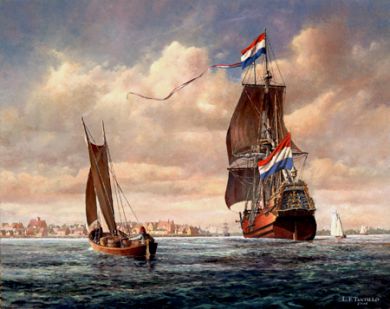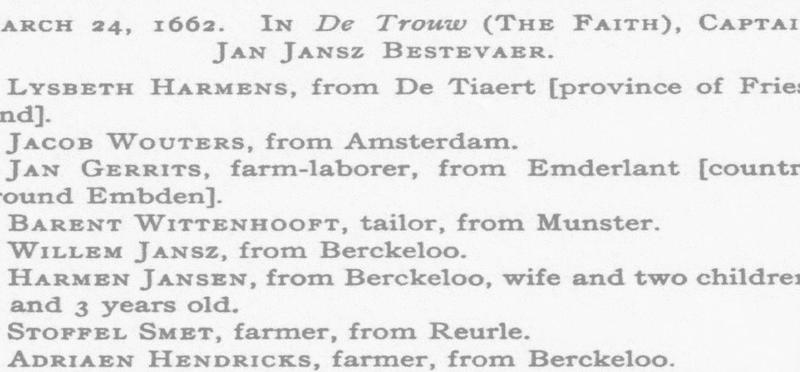-----1-Willem Janse Lubberdinck Van Borculo(1621-1683) Marriage 1: Cornelia Van Salee ( 1638 - 1665)
Marriage 2: Leysebet (Elizabeth) Jansen (c. 1650 - 1683)
-----1-Harman Jensen Lubberdinck Van Borculo (1626-1671) M. Willemken Warners Elderinck (c.1630 - 1697)
----3-Jacques Barkelow (circa 1698 -1780) M. Jannetje Bernjtsen (c. 1705 - c. 1785)
-----4-William Barkelow (1727-1791) M. Elizabeth Eleanor Delong (1728 - 1763)
------5-James Barkelow (1753-1834) Marriage 1: Elizabeth Yager (1765 - 1810)
Marriage 2: Elazabeth(Mary) Van Rensselaer (1790 - 1816)
Marriage 3: Elizabeth Chambers (1790 - 1844)
-----6-John Benjamin Barklow (1815-1871) M. Catherine Overley (1817 - 1854)
m. Ann Miller (1845 - 1927)
-----8-Bertha May Barklow (1878 - 1962) m. Harvey Snell (1881 - 1976)
-----7-Sarah Thomas Barklow (1819-1904) m. Moses Hixon (1820 - 1898) ----7-William Barklow (1817-1896) M. Lydia Klingman (1823 - 1915)
-----8-Calvin J. Barklow (1843-1923) M. Emma Kinman (1853 - 1920) -----8-Mary Catherine Barklow (1849-1919) and Joseph E. Hess (c1845-) M. George Fisher (1849 - 1919)
----11-Richard Barklow (1932- 2002) M. Phyllis Olivo
-----12-David L. Barklow
-----12-Virgina Barklow
------13- Eric O'Malley
------13- Madeline O'Malley
------13- Jack O'Malley
------13- Sam O'Malley
----12-William Edward Barklow M. Lori Ann Leblanc
-----12-James Richard Barklow M. Kata Mestrovic
-----13-Barbara Ann Barklow
-----13-Scott Edward Barklow
-
If you are interested in the history of the Barklow Family and would like to contribute details to this site ( such as other names, dates or corrections) please email me at: barkj@comcast.net
Your comments and contributions are welcomed
 | ||||
This page was last updated: June 8, 2023
by Jim Barklow, Concord, NH
THE BARKLOW FAMILY TREE
Click on BLUE links for more information about each Ancestor.
SURNAME LINKS
The first of our family to come to America was Willem Janzen Van Borkelo (Borckeloo). He was here prior to 1657 and was evidently a man of som means as he immediately bought a home, a house and lot with a barn and other buildings.
In February, 1658, he married Cornelia Van Salee, daughter of Anthony Jansen Van Salee and his wife Greetje Reiniers. Anthony Van Salee was the holder of the first patent on farm land issued in Gravesend. In 1661,
Willem returned to Holland for business purposes and there his description of the new land was so enthusiastic that his brother, Harman Janzen Van Borkelo decided to return with him.
Interest in the New World was at it's height in Holland. Only fifty years earlier, Henry Hudson had returned from his exploration of the country and the river which bears his name. His glowing reports of the new country quickly spread all over Holland.
Harman Janzen Van Borkelo would no doubt have gone with his brother on his first trip to New Amsterdam but he was just getting married. He and his wife, who was Willempje Warnaers, now had two small children, a daughter Jannetje, aged five and a son, Reynier, age two. Never-the-less, they listened with intense interest to Willem's description of the new country; a place, he said, where fine farm land was to be had for the asking.
SHIP'S MANIFEST
Source: Holland Society Yearbook 1902
ARRIVAL IN AMERICA

